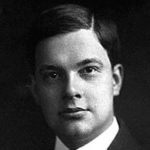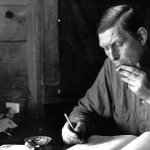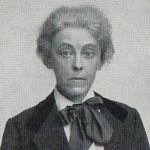(In memory of Joseph Mary Plunkett)
("Romantic Ireland's dead and gone,
It's with O'Leary in the grave.")
William Butler Yeats.
("Romantic Ireland's dead and gone,
It's with O'Leary in the grave.")
William Butler Yeats.
"Romantic Ireland's dead and gone,
It's with O'Leary in the grave."
Then, Yeats, what gave that Easter dawn
A hue so radiantly brave?
It blessed the earth till it gave birth
To valour thick as blooms of heather.
Romantic Ireland never dies!
O'Leary lies in fertile ground,
And songs and spears throughout the years
Rise up where patriot graves are found.
Immortal patriots newly dead
And ye that bled in bygone years,
What banners rise before your eyes?
What is the tune that greets your ears?
The young Republic's banners smile
For many a mile where troops convene.
O'Connell street is loudly sweet
With strains of Wearing of the Green.
The soil of Ireland throbs and glows
With life that knows the hour is here
To strike again like Irishmen
For that which Irishmen hold dear.
Lord Edward leaves his resting place
And Sarsfield's face is glad and fierce.
See Emmet leap from troubled sleep
To grasp the hand of Padraic Pearse!
There is no rope can strangle song
And not for long death takes his toll.
No prison bars can dim the stars
Nor quicklime eat the living soul.
Romantic Ireland is not old.
For years untold her youth shall shine.
Her heart is fed on Heavenly bread,
The blood of martyrs is her wine.



















Comment form: